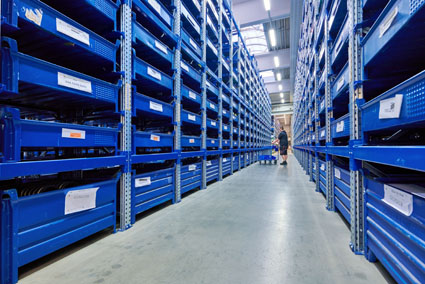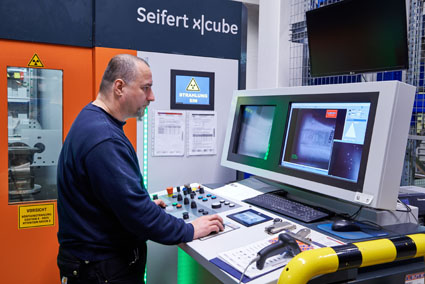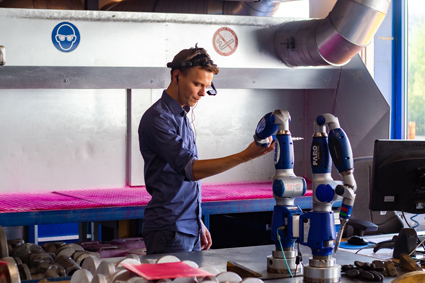What measures have been taken to maintain the ability to deliver to LESER's customers?
An important aspect here is basically LESER's strategy of maintaining stocks in order to offer our customers short and reliable delivery times. We store raw and finished parts worth € 12 million in our factory in Hohenwestedt. Our subsidiaries and partners also keep additional stocks on site to ensure short delivery times in the individual markets.
This has enabled us to allocate available parts to existing orders at an early stage and to find alternatives in coordination with our customers in case of shortages. For example, we switched to other materials, manufactured the component from solid material or selected an alternative product.
Against the background of breaking off supply chains, it was initially important to obtain clarity about emerging bottlenecks and to define fields of action. By intensifying range analyses at component level and customer order analyses, we were able to quickly establish this transparency.
What did you do in the event of an impending bottleneck?
Our LESER Materials Management Department pursues a consistent 2-supplier strategy. For all components we have at least two independent suppliers and sometimes one additional supplier in qualification. In many cases, we were thus able to place necessary orders simply with a second, unaffected supplier. Especially for cast materials this is not a matter of course. Keeping and qualifying several casting models per material number is costly. Many valve manufacturers therefore avoid this effort. Some valve bodies were also produced from solid material by machining.
Were these second suppliers always in an unaffected country?
No, we too were not prepared for a case like a global pandemic. However, LESER's established materials management process of finding and developing new suppliers helped us. In individual cases, we quickly activated additional suppliers not affected by the pandemic. For example, through close cooperation between the Quality and Materials Management departments, we were able to qualify a casting supplier, including model construction, at short notice, thus avoiding a bottleneck.
The close contact and the long-standing relationships with our foundrymen built up through materials management helped us to quickly get material back on the way to our warehouse after the reopening in India. The first air freight delivery from India was already on its way directly after the reopening of the economy.
Whenever an order was affected by missing materials, my sales experience and good contacts to former colleagues enabled me to contribute early on to informing the customer and possible solutions, for example the delivery of alternative products.




